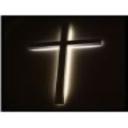Yahoo Answers is shutting down on May 4th, 2021 (Eastern Time) and beginning April 20th, 2021 (Eastern Time) the Yahoo Answers website will be in read-only mode. There will be no changes to other Yahoo properties or services, or your Yahoo account. You can find more information about the Yahoo Answers shutdown and how to download your data on this help page.
Trending News
Zachary Founding Fathers rebuttal and t not being Christian?
The Founding Fathers of this country were virtually all Christians. While a few can be found to have written letters expressing opinions on certain hypocracies of the Church or the dangers of religious influences they still consider themselves very religious men who recognize that Jesus Christ is the Son of God. Below is a list every single founding father and their religious affiliation. It is the atheists that have invented the "Deist Lie".
Revelation 22:15
But outside are dogs and sorcerers and sexually immoral and murderers and idolaters, and whoever loves and practices a lie.
Signers of the Constitution
Daniel Carroll Catholic,
Thomas Fitzsimons Catholic,
Roger Sherman Congregationalist,
Nathaniel Gorham Congregationalist,
John Langdon Congregationalist,
Nicholas Gilman Congregationalist,
Abraham Baldwin Congregationalist/Episcopalian,
William Samuel Johnson Episcopalian; Presbyterian,
James Madison Jr. Episcopalian,
George Read Episcopalian,
Daniel of St. Thomas Jenifer Episcopalian,
David Brearly Episcopalian,
Richard Dobbs Spaight, Sr. Episcopalian,
Robert Morris Episcopalian,
Gouverneur Morris Episcopalian,
John Rutledge Episcopalian,
Charles Cotesworth Pinckney Episcopalian,
Charles Pinckney Episcopalian,
Pierce Butler Episcopalian,
George Washington Episcopalian,
Benjamin Franklin Episcopalian (Deist),
William Blount Episcopalian; Presbyterian,
James Wilson Episcopalian; Presbyteran,
Rufus King Episcopalian; Congregationalist,
Jacob Broom Lutheran,
William Few Methodist,
Richard Bassett Methodist,
Gunning Bedford Jr. Presbyterian,
James McHenry Presbyterian,
William Livingston Presbyterian,
William Paterson Presbyterian,
Hugh Williamson Presbyterian,
Jared Ingersoll Presbyterian,
Alexander Hamilton Huguenot; Presbyterian; Episcopalian,
Jonathan Dayton Presbyterian; Episcopalian,
John Blair Presbyterian; Episcopalian,
John Dickinson Quaker; Episcopalian,
George Clymer Quaker; Episcopalian,
Thomas Mifflin Quaker; Lutheran,
Men who didnt sign but debated the Constitution
Oliver Ellsworth Congregationalist,
Caleb Strong Congregationalist,
John Lansing, Jr. Dutch Reformed,
Robert Yates Dutch Reformed,
William Houstoun Episcopalian,
William Leigh Pierce Episcopalian,
Luther Martin Episcopalian,
John F. Mercer Episcopalian,
Elbridge Gerry Episcopalian,
George Mason Episcopalian,
Edmund J. Randolph Episcopalian,
George Wythe Episcopalian,
James McClurg Presbyterian,
William C. Houston Presbyterian,
William R. Davie Presbyterian,
Alexander Martin Presbyterian,
Signers of the Declaration of Independencej
Charles Carroll Catholic,
Samuel Huntington Congregationalist,
Roger Sherman Congregationalist,
William Williams Congregationalist,
Oliver Wolcott Congregationalist,
Lyman Hall Congregationalist,
Samuel Adams Congregationalist,
John Hancock Congregationalist,
Josiah Bartlett Congregationalist,
William Whipple Congregationalist,
William Ellery Congregationalist,
John Adams Congregationalist; Unitarian,
Robert Treat Paine Congregationalist; Unitarian,
George Walton Episcopalian,
John Penn Episcopalian,
George Ross Episcopalian,
Thomas Heyward Jr. Episcopalian,
Thomas Lynch Jr. Episcopalian,
Arthur Middleton Episcopalian,
Edward Rutledge Episcopalian,
Francis Lightfoot Lee Episcopalian,
Richard Henry Lee Episcopalian,
George Read Episcopalian,
Caesar Rodney Episcopalian,
Samuel Chase Episcopalian,
William Paca Episcopalian,
Thomas Stone Episcopalian,
Elbridge Gerry Episcopalian,
Francis Hopkinson Episcopalian,
Francis Lewis Episcopalian,
Lewis Morris Episcopalian,
William Hooper Episcopalian,
Robert Morris Episcopalian,
John Morton Episcopalian,
Stephen Hopkins Episcopalian,
Carter Braxton Episcopalian,
Benjamin Harrison Episcopalian,
Thomas Nelson Jr. Episcopalian,
George Wythe Episcopalian,
Thomas Jefferson Episcopalian (Deist),
Benjamin Franklin Episcopalian (Deist),
Button Gwinnett Episcopalian; Congregationalist,
James Wilson Episcopalian; Presbyterian,
Joseph Hewes Quaker, Episcopalian,
George Clymer Quaker, Episcopalian,
Thomas McKean Presbyterian,
Matthew Thornton Presbyterian,
Abraham Clark Presbyterian,
John Hart Presbyterian,
Richard Stockton Presbyterian,
John Witherspoon Presbyterian,
William Floyd Presbyterian,
Philip Livingston Presbyterian,
James Smith Presbyterian,
George Taylor Presbyterian,
Benjamin Rush Presbyterian,
Signers of the Articles of Confederation
Daniel Carroll Catholic,
Andrew Adams Congregationalist,
Richard Hutson Congregationalist,
Samuel Adams Congregationalist,
Josiah Bartlett Congregationalist,
William Ellery Congregationalist,
John Hancock Congregationalist,
Samuel Huntington Congregationalist,
Roger Sherman Congregationalist,
Oliver Wolcott Congregationalist,
Thomas Heyward Jr. Episcopalian,
John Penn Episcopalian,
Francis Lightfoot Lee Episcopalian,
Richard Henry Lee Episcopal
3 Answers
- Anonymous1 decade agoFavorite Answer
Most of these guys supported the institution of Slavery. That's not Christian at all.
- PenelopeLv 45 years ago
In the beginning? All of them were. Over time and during what I THINK was called the time of Enlightenment, several far more liberal religions came about bring several of the Framers to conversation such as Universalism and Deism. These two faiths moved away from Calvinism's predestination and on to universal salvation and freedom. After the horrors of war and starvation, many lost faith completely. Watch the dates of the quotes given from the Framers. As time goes on, "God" plays less and less a role in their writings. Most of our legal outlooks are based on John Locke who was Puritan but moved onto philosophy and became involved with politics around 1666(Ahaha I just saw the irony in that). Locke states that we have a social contract with the govt and that the govt can only rule as well and as long as the people let them. (Sound familiar?) "Several of the Framers ideas centered on their belief that the major function of government was creating mechanisms to allow individuals to solve conflicts in an orderly and peaceful manner." American Government Continuity and Change 2006 Texas Edition Conner, Karen and Sabato, Larry I am failing to see just how religion plays into that. The country declared it's Independence because of TAXES. No God involved. We found a war to be free of England. Not religion. The founding of this country as the US had nothing to do with God, and everything to do with politics.
- TheMadProfessorLv 71 decade ago
I find the point unimportant, frankly. Considering where the early colonies came from, it would only be remarkable if the majority weren't Christian. It's about as relevant as pointing out they were all white. What IS important is that they deemed personal religious freedom vital enough to add it as a Constitutionally-protected right. This means no one - not the government, not my neighbor and not you - has the right to tell me who (or even if) I should worship.



